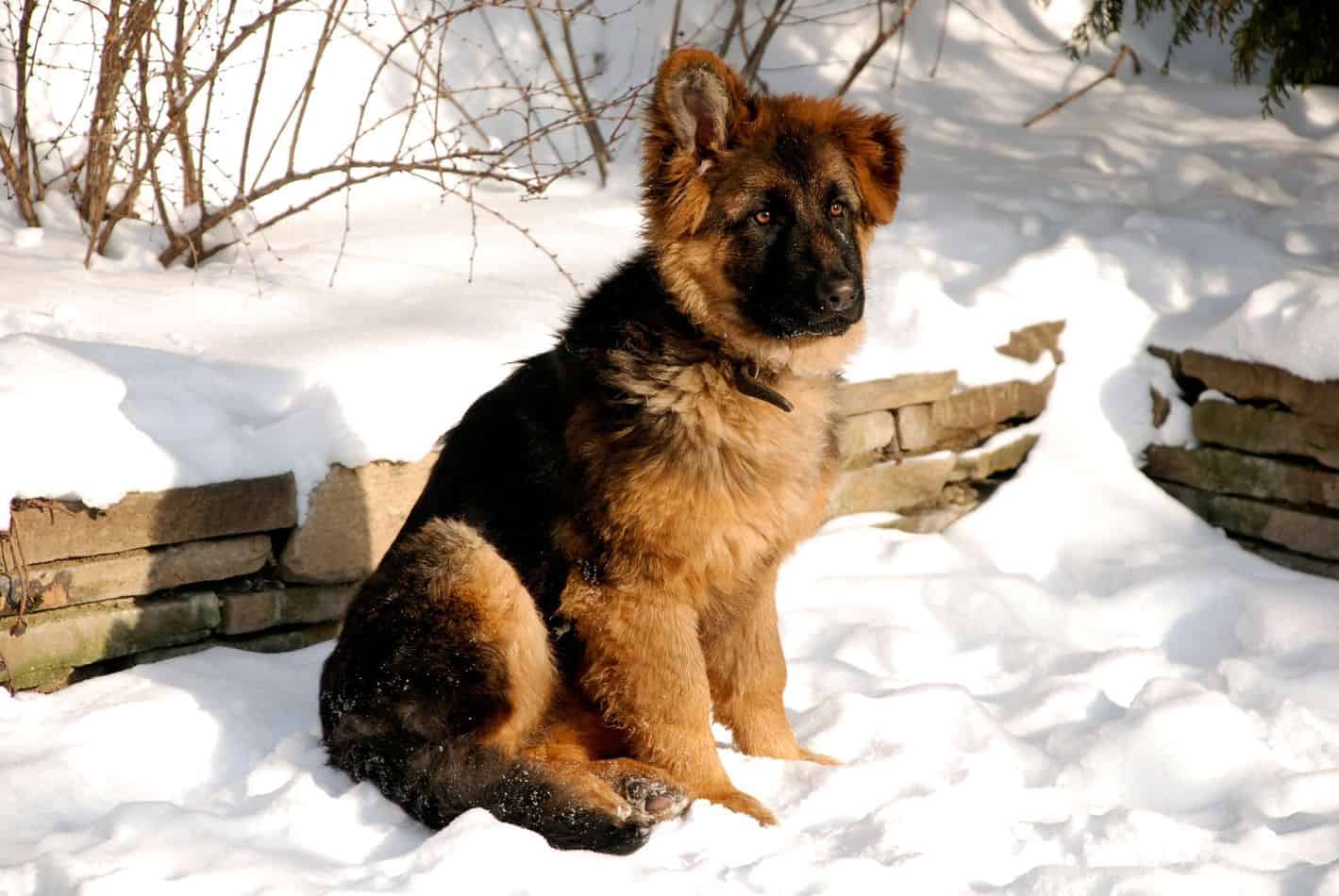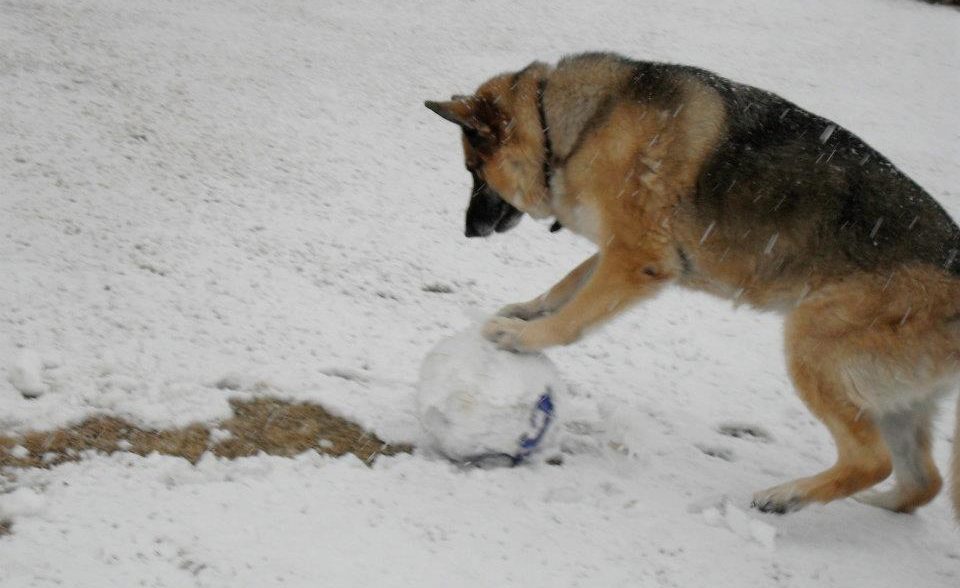German Shepherds are a breed that is renowned for their adaptability to a variety of conditions.
Do they get cold? It’s a common misconception that German Shepherds don’t do well in the cold, but this isn’t true.
They were bred to herd sheep even when it was freezing outside! That doesn’t mean they aren’t affected by weather though.
In fact, GSDs have been known to experience health problems such as hypothermia and frostbite if left out in the cold too long without proper protection from the elements.
Let’s start now.
Do German Shepherds Get Cold?
Contents
- 1 Do German Shepherds Get Cold?
- 2 How Do German Shepherds Cope With Cold Weather?
- 3 How Do You Know When Your GSD Is Too Cold?
- 4 Other Factors That Affect Cold Weather Tolerance
- 5 Do You Want To Know How Your German Shepherd Handles Cold Weather?
- 6 How To Keep A German Shepherd Warm In Cold Weather
- 7 Conclusion
The answer is yes. Like any other dog, a German Shepherd will succumb to hypothermia and cold weather conditions.
This does not mean they cannot withstand the cold; on contrary, some GSDs are better adjusted for cold than many other breeds because of their large bodies and thick double coats that provide them with more insulation than smaller dogs who get colder faster.
GSDs also have a higher pain threshold and are less likely to whine or shiver when cold, which makes it easy for unsuspecting dog owners to miss the signs of hypothermia in their pet.
How Do German Shepherds Cope With Cold Weather?
If you’ve ever wondered how german shepherds cope with cold weather, you’re not alone! These dogs are able to handle freezing temperatures due of the following:
-
High Energy
Typical of any working breed, German Shepherds possess enormous energy levels.
-
Body Structure
German Shepherds have a sturdy build that keeps them warm even in the coldest climates.
-
Double Coat
These dogs are known for their thick, coarse outside hair and their soft undercoat. This protects them from the cold weather and also helps keep them dry.
Thanks to this coat, german shepherds can adapt well to a variety of climates.
In fact, they are one of the most popular breeds in the United States!
So, while german shepherds may not be built for cold weather specifically, they certainly have some features that help them cope with it.
If you live in a colder climate, make sure to provide your german shepherd with plenty of warm shelter and exercise during winter!
How Do You Know When Your GSD Is Too Cold?

When german shepherds are too cold, they may become stiff and sluggish.
They might be hunched over in their gait with legs spread out to the side.
They also often begin howling or barking excessively when this happens – especially if it is happening at night!
It’s important to look for these signs because they indicate that your gsd is experiencing hypothermia.
If you see these symptoms, it’s crucial to take steps to warm them up as soon as possible.
This can be done through a variety of methods, but the most important thing is that you act quickly! Keep your german shepherd safe and healthy by being aware of how cold weather affects them.
Other Factors That Affect Cold Weather Tolerance
There are other factors to consider when it comes to your German Shepherd’s cold weather tolerance. These are:
- Wind Chill
- Dampness
- Undercoat
- Health
- Age
Each of these can affect how well your dog tolerates colder weather. Let’s take a closer look at each one.
-
Wind Chill
The wind chill factor is a measure of how cold it feels when the effects of the wind are combined with the current temperature.
There are several things to consider here, including whether or not your German Shepherd has an undercoat and if there’s snow on the ground.
If you live in a snowy climate where german shepherds make wonderful sled dogs, keep in mind that the snow can insulate them and make them feel warmer than they actually are.
-
Dampness
When it’s cold and damp outside, it’s harder for your German Shepherd to warm up. This is because moisture absorbs heat, making the air colder.
If you live in a climate with high levels of humidity, your german shepherd may be more prone to over-heating, which can cause health problems.
-
Undercoat
The undercoat of a German Shepherd is what helps keep him warm in cold weather. If the coat isn’t dense enough or if it’s nonexistent, he’ll have trouble staying comfortable during colder months of the year.
-
Health
If your German Shepherd is unhealthy, he may not be able to tolerate cold weather as well as a healthy dog. This could be due to problems with his immune system, heart disease, or other health conditions.
-
Age
Older dogs may have a harder time tolerating cold weather than younger dogs. This is because their bodies don’t work as efficiently as they used to, which means their temperature regulation processes aren’t as effective.
Do You Want To Know How Your German Shepherd Handles Cold Weather?
The best way to determine if your german shepherd can handle cold weather is by taking him outside for some fun in the snow!
Just be sure not to leave him out there too long and always bring him back inside when he’s had enough.
If you’re not sure whether or not the cold is too much for your german shepherd, always err on the side of caution and keep him warm and cozy inside until the temperature warms up a bit.
Also Read: Do German Shepherds Have Curly Tails?
How To Keep A German Shepherd Warm In Cold Weather
German shepherds are bred to be working dogs and can easily manage in cold weather. However, there are some things you can do to ensure your shepherd stays warm during the colder months.
Don’t trim their hair too shortly! Keep their coat long and full by brushing it regularly. This will help keep them warm and protect them from the elements.
There are a few things you can do to keep their feet warm. One is to get them a pair of dog boots. You can also keep their nails short, as this will help protect their paws from the cold ground and ice.
-
Avoid taking a Bath
Another thing you can do is avoid taking a shower or bath. Not only does it lower their body temperature, but it can also strip away their natural oils, which help keep their coat healthy and protected.
-
Boost their daily calorie intake.
Make sure you increase their daily calorie intake during the colder months. This will help them burn more energy and generate more heat.
-
Offer a pair of dog boots
Another way to keep them warm is by providing them with a good pair of dog boots. This will protect their paws from the cold and ice.
-
Keep their nails short
Make sure you also keep their nails short, as long as they’re not trimmed too closely to the quick. Long nails can make it difficult for your shepherd to walk on icy or snow-covered ground.
-
Offer warm shelter
If it’s too cold for you, it’s probably too cold for them! Make sure they have access to warm shelter and plenty of good food.
Ensure they are also kept in a secure location so they can’t run off and get lost in the cold.
With a little preparation, you can keep your German shepherd warm and comfortable during those chilly winter months!
Conclusion
Although a German Shepherd’s body is better equipped to handle the cold than most breeds, this doesn’t mean they don’t still feel it.
Dogs have natural fur coats that help insulate them from heat and cold, but these can get wet or dirty which will make your pup less able to regulate their temperature effectively.
Your GSD may not love winter as much as you do if they are left out in frigid conditions for too long without shelter.
This lack of protection could cause frostbite on any exposed skin patches such as paws or ears, even with a thick coat of fur!
If you want your dog to be happy during the colder months, make sure they have plenty of warm blankets and bedding.




